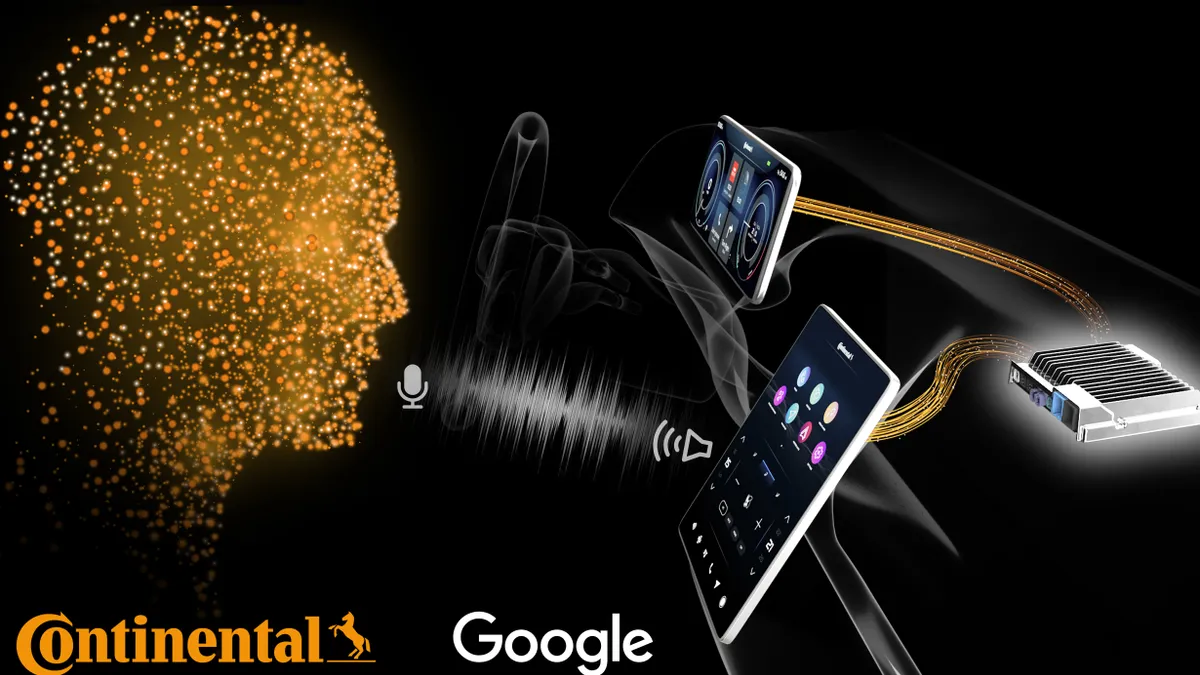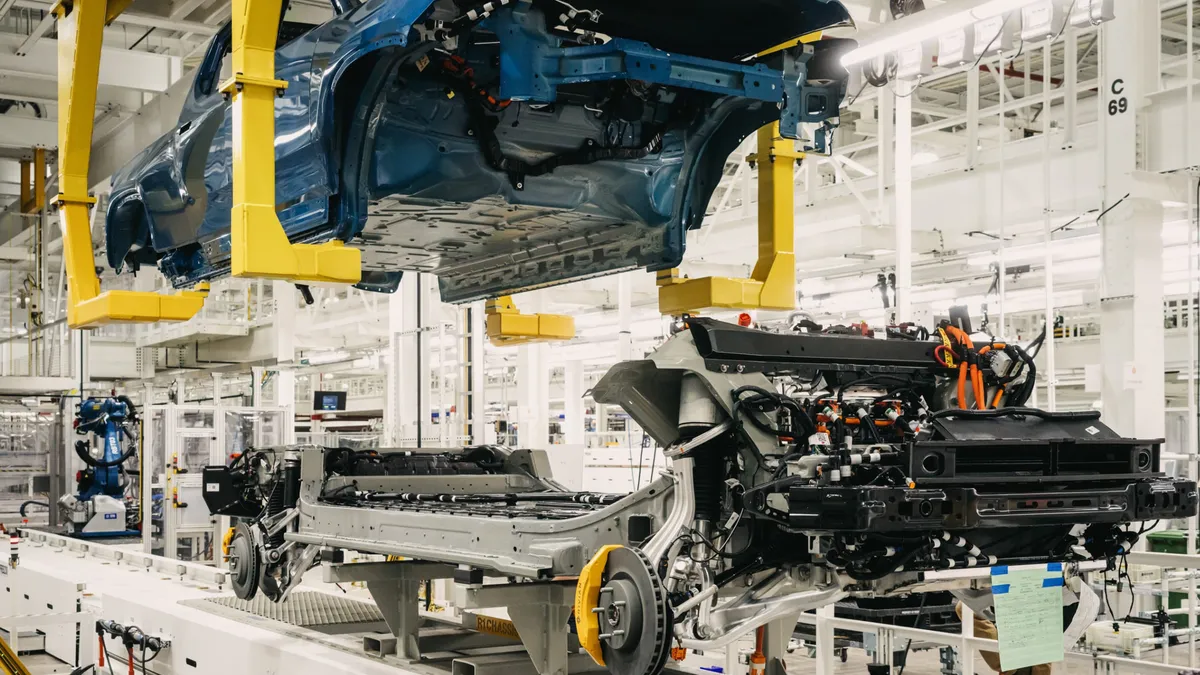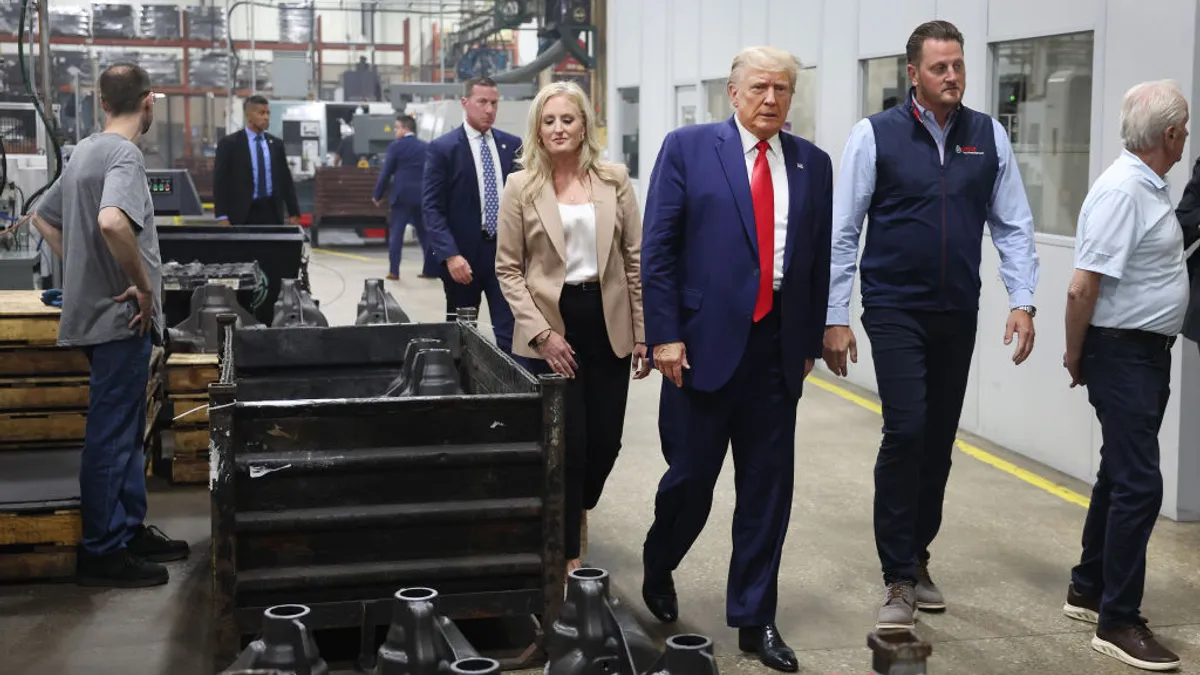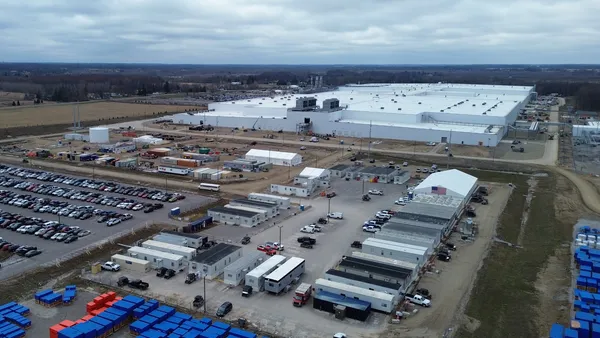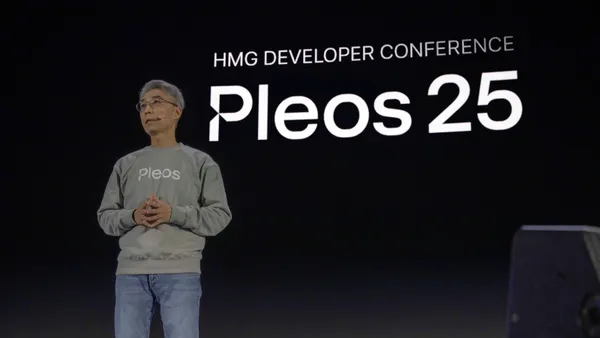Dive Brief:
- Automotive supplier Continental will integrate Google Cloud's generative AI technology into its Smart Cockpit High-Performance Computer solution to support virtual assistants, the companies said Monday.
- The generative AI technology supported by Google Cloud will allow drivers and passengers to communicate with their vehicles using natural language, which is easier to use than scripted commands.
- The strategic partnership will expand into additional fields, according to the companies, including building other in-vehicle connectivity products.
Dive Insight:
Google has made inroads in the auto industry with its Android software and new Google Cloud partnerships. Last month, General Motors said it would use Google Cloud’s conversational AI technology to deploy online chatbots to answer customer questions about vehicles and features through its OnStar Interactive Virtual Assistant.
Thanks to Continental's partnership with Google Cloud, drivers in vehicles equipped with the Smart Cockpit HPC solution can ask follow-up questions or request technical information about their vehicles, such as the correct tire pressure.
The Smart Cockpit HPC solution runs on Google’s Android Automotive OS, an Android operating system for vehicle infotainment screens. It’s a full-stack, open-source software platform that runs directly on a vehicle’s hardware without the need to sync a smartphone.
“This is how our vision of software-defined vehicles starts to become a reality,” said Philipp von Hirschheydt, Continental board member and automotive group head, at the IAA Mobility conference this week.
The Polestar 2 was the first vehicle with AAOS and Google Assistant built-in.
The HPC solution includes pre-integrated functions for instrument clusters, infotainment screens and advanced driver assist systems into a single unit. Continental says it can significantly reduce complexity for automakers and the amount of wiring needed.
By the end of 2024, 30 vehicle models from different manufacturers will be equipped with Continental’s HPCs, according to the company.



